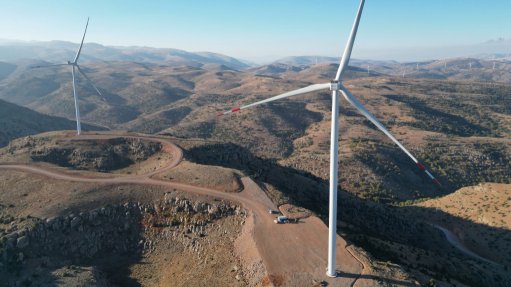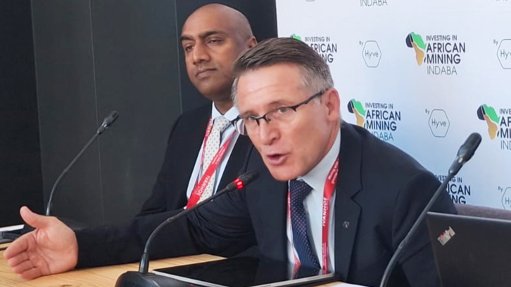Malaria milestone
Unless one is a football fan or a lover of the music of the late Manu Dibango, one will be hard pressed to say much that is positive about Cameroon, a 475 440 km2 country straddling Central and West Africa that is wedged between Nigeria, Chad, the Central African Republic, Equatorial Guinea, Gabon and the Republic of Congo.
A sizeable amount of the coverage it receives in international media is about claims by English-speaking Cameroonians, who inhabit the regions adjoining Nigeria, that they have been made second-class citizens in their largely French-speaking country. This sparked a civil war in 2017 and an end to this conflict doesn’t seem to be in sight.
The media spotlight is also frequently turned on the President, Paul Biya, who is Africa’s second-longest-serving elected leader and ranks among the most corrupt on the continent. At 90, he is not in very good shape health-wise and is notorious for long stays in Europe for medical treatment. Biya’s wife, Chantal, is also in the corruption super league. A journalist who felt compelled to expose the extent of her misuse of State resources in a book that has since been banned in the country has this to say about the First Lady: “The fact is that Chantal Biya’s life is so outrageous, corrupt and wasteful – quite frankly, nothing short of a national embarrassment.”
Of course, there is more to Cameroon than this negativity. It produced Dibango, an internationally renowned songwriter and saxophonist who was appointed a United Nations Educational, Scientific and Cultural Organisation Artist for Peace in 2004. Its national men’s football team is one of the most successful in Africa, having won the Africa Cup of Nations five times – in 1984, 1988, 2000, 2002 and 2017. It became the first African team to reach the quarterfinals of the World Cup in 1990.
Now the country is blazing a trail that will definitely boost its standing. Last month, it launched the world’s first routine vaccine programme against malaria – a move that is expected to save the lives of thousands of children. The symbolic first jab was given to a baby girl in Yaounde, the capital city, and the country has pledged to offer the RTS,S vaccine – recommended by the World Health Organisation (WHO) for widespread use in 2021 – free of charge to infants aged six months or younger.
The vaccine was successfully piloted in Kenya, Ghana and Malawi, where it slashed the malaria death rate among children in the eligible age range by 13%. According to researchers, the jab – developed by British pharmaceuticals giant GSK over 30 years – is effective in at least 36% of cases, which means it could save about one in three young lives.
The RTS,S vaccine is undoubtedly an important additional tool in the fight against malaria, alongside mosquito nets and malaria drugs, and it is estimated using all three together could give children 90% protection against malaria.
According to the WHO, 600 000 Africans die of malaria every year, equivalent to 96% of the global death toll. This is akin to two jumbo jets crashing every single day of the year, with everyone on board perishing. In Cameroon, about six-million people contract the disease every year, with 4 000, mostly children, dying in the country’s healthcare facilities.
As Africa’s fight against malaria ratchets up, 21 countries – including Burkina Faso, Liberia, Niger and Sierra Leone – are poised to start rolling out the RTS,S vaccine this year. According to the Global Vaccine Alliance, an entity created in 2000 to improve access to new and underused vaccines for children in the world’s poorer countries, demand for the doses is already substantial, but only about 18-million will be made available before 2025.
Meanwhile, the WHO announced early last month that it had granted Carbo Verde, a small island nation off the West African coast, malaria-free status. This was attained through strengthening the country’s healthcare system and increasing access to diagnosis and treatment of all cases. The last country in sub-Saharan African to be declared malaria free was Mauritius, in 1973, with Algeria, in North Africa, attaining this status in 2019.
Article Enquiry
Email Article
Save Article
Feedback
To advertise email advertising@creamermedia.co.za or click here
Comments
Announcements
What's On
Subscribe to improve your user experience...
Option 1 (equivalent of R125 a month):
Receive a weekly copy of Creamer Media's Engineering News & Mining Weekly magazine
(print copy for those in South Africa and e-magazine for those outside of South Africa)
Receive daily email newsletters
Access to full search results
Access archive of magazine back copies
Access to Projects in Progress
Access to ONE Research Report of your choice in PDF format
Option 2 (equivalent of R375 a month):
All benefits from Option 1
PLUS
Access to Creamer Media's Research Channel Africa for ALL Research Reports, in PDF format, on various industrial and mining sectors
including Electricity; Water; Energy Transition; Hydrogen; Roads, Rail and Ports; Coal; Gold; Platinum; Battery Metals; etc.
Already a subscriber?
Forgotten your password?
Receive weekly copy of Creamer Media's Engineering News & Mining Weekly magazine (print copy for those in South Africa and e-magazine for those outside of South Africa)
➕
Recieve daily email newsletters
➕
Access to full search results
➕
Access archive of magazine back copies
➕
Access to Projects in Progress
➕
Access to ONE Research Report of your choice in PDF format
RESEARCH CHANNEL AFRICA
R4500 (equivalent of R375 a month)
SUBSCRIBEAll benefits from Option 1
➕
Access to Creamer Media's Research Channel Africa for ALL Research Reports on various industrial and mining sectors, in PDF format, including on:
Electricity
➕
Water
➕
Energy Transition
➕
Hydrogen
➕
Roads, Rail and Ports
➕
Coal
➕
Gold
➕
Platinum
➕
Battery Metals
➕
etc.
Receive all benefits from Option 1 or Option 2 delivered to numerous people at your company
➕
Multiple User names and Passwords for simultaneous log-ins
➕
Intranet integration access to all in your organisation


















